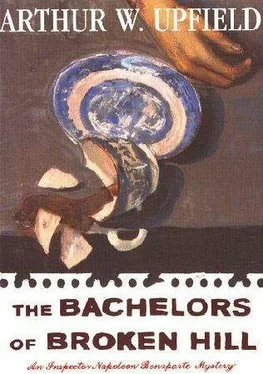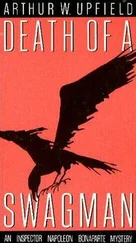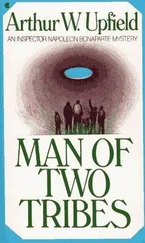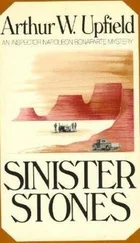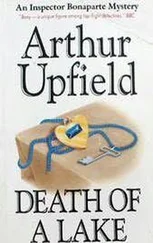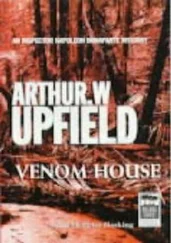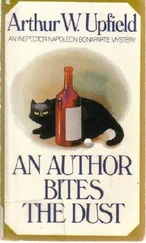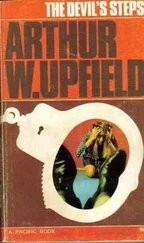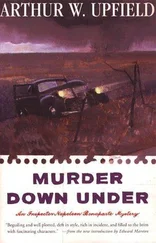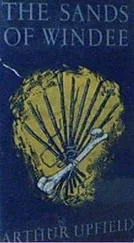Arthur Upfield - Batchelors of Broken Hill
Здесь есть возможность читать онлайн «Arthur Upfield - Batchelors of Broken Hill» весь текст электронной книги совершенно бесплатно (целиком полную версию без сокращений). В некоторых случаях можно слушать аудио, скачать через торрент в формате fb2 и присутствует краткое содержание. Жанр: Классический детектив, на английском языке. Описание произведения, (предисловие) а так же отзывы посетителей доступны на портале библиотеки ЛибКат.
- Название:Batchelors of Broken Hill
- Автор:
- Жанр:
- Год:неизвестен
- ISBN:нет данных
- Рейтинг книги:4 / 5. Голосов: 1
-
Избранное:Добавить в избранное
- Отзывы:
-
Ваша оценка:
- 80
- 1
- 2
- 3
- 4
- 5
Batchelors of Broken Hill: краткое содержание, описание и аннотация
Предлагаем к чтению аннотацию, описание, краткое содержание или предисловие (зависит от того, что написал сам автор книги «Batchelors of Broken Hill»). Если вы не нашли необходимую информацию о книге — напишите в комментариях, мы постараемся отыскать её.
Batchelors of Broken Hill — читать онлайн бесплатно полную книгу (весь текст) целиком
Ниже представлен текст книги, разбитый по страницам. Система сохранения места последней прочитанной страницы, позволяет с удобством читать онлайн бесплатно книгу «Batchelors of Broken Hill», без необходимости каждый раз заново искать на чём Вы остановились. Поставьте закладку, и сможете в любой момент перейти на страницу, на которой закончили чтение.
Интервал:
Закладка:
The story told by the aboriginal trackers had to be reconstructed, for they had begun at the middle and had to work backwards and then forwards to its completion.
The end of the paved street was fifty-seven yards beyond the last of the houses, and near where one stepped from the made road to the sandy waste was the scene of the killing. It was here that the story told by the trackers actually began.
When the man stepped off the hard pavement he was carrying the woman. Behind him the nearest street light, that under which he had been seen with his victim, was approximately two hundred yards distant. Before him was the blacked-out sand waste, beyond which the superstructure of the mines stood sharply revealed by floodlights. Against the foot of the broken hill and grey mullock dump could not be seen at night.
The murderer had carried his victim for nine hundred-odd yards before that mullock dump loomed ahead of him, and then he had dropped the body and stood hesitant about his next move. That had been to trudge back across the sand waste towards the distinctive lighting of Argent Street.
It was Crome’s theory that the story told by the trackers indicated that the murderer was a stranger to Broken Hill, for every man working at the mine beyond the dump would know that path tramped hard by their feet and used daily by dozens who rode a bicycle to and from work. Having arrived at the end of the street, the man had killed his victim, intending to dispose of the body among the mine machinery and thus divert suspicion in the mind of anyone who had chanced to see him with the woman. Faced by the steep wall of the mullock dump, he had not seen the path and, wearied by the trek across the sand, he decided finally to drop the body there.
This theory was supported, as to the stranger in Broken Hill, by the fact that no miner would be unaware of what aborigines can read on impressionable surfaces, and no other resident of Broken Hill would be ignorant of it, either. In all of this Bony concurred, and Crome’s confidence rose a fraction of the percentage Pavier said was needful.
Again at Headquarters, Bony was shown the knife blade. It was seven inches in length, fluted in triangular shape to within an inch of the fine point. That it had been partly filed through close to the haft was evident, and the purpose had been effectual because the wound had not bled. After that came the plaster casts of the murderer’s footprints made by shoes size eight, worn slightly at the back of the heels and at no particular edge of the soles.
“Certainly a large man and heavy,” Bony said. “He struts in the manner of the egotist, head up, shoulders squared. It’ll be Tuttaway without doubt. Telegraph Melbourne for all available information concerning the history of the man, as well as the medical history, and ask if the gaol authorities have a boot or shoe worn by Tuttaway. Urge prompt despatch by air, Crome, for I cannot spend too much time on this case.”
“I’ll do it at once-and thank you, sir.”
Left alone, Bony perused the transcript of notes taken by Crome of Pavier’s interview with the dead woman’s sister. It was quickly seen that the conversation was confined to the immediate past, for Pavier would have known, and the Staff Records would include, the details of Policewoman Lodding’s previous employment and places of abode.
It could be accepted with certainty that the murdered woman knew her companion of that night, for she was as remote from the pick-up type as platinum is from lead. And yet her sister had declared repeatedly to Pavier that Muriel Lodding had no male friends with whom she was sufficiently intimate to walk arm in arm at night. The two women lived quietly. Both disliked the cinema but often went to a concert or a lecture. Their interests were identical, and men were not included.
Bony rang Pavier.
“What were your impressions of Mrs Dalton?” he asked.
“Quite good,” replied Pavier. “Slightly older than Lodding but still attractive. Was positive that her sister hadn’t a man friend in Broken Hill. I pressed the matter further, went back to the years before they came here, and Mrs Dalton was equally emphatic that Lodding had never shown interest in any man. Used to tax her about it, warn her she’d become a sour old maid.”
“So I see from the transcript, sir. Extraordinary setup.”
Bony read the statements obtained from the sweethearts. Time and circumstances and identification of the man as far as it went were identical in both statements. That made by the girl gave more, but not much more than the records would provide.
Staff Records did not help much.
Muriel Lodding and her sister arrived in Australia from London in June 1936. They had lived in Sydney from that date until transferring to Broken Hill in November 1938. In Sydney the dead woman worked for a firm of wool brokers and station agents, and the transfer to Broken Hill had been dictated by the Broken Hill office of the same firm. She had remained with the Broken Hill office for two years, left to work for a solicitor, and finally joined the clerical staff of the Police Department, subsequently ranking as senior policewoman only for salary.
Next morning before eleven Crome came into Bony’s office with a substantial package.
“Just arrived from Melbourne by special air freight,” he announced, and proceeded to remove the covering to disclose a pair of shoes and a long official envelope.
“Those casts,” snapped Bony.
Crome brought them, surprising Bony by his swiftness of movement. They were compared with the shoes, and there was triumph in the sergeant’s eyes when they met the gleaming blue eyes over the laden desk.
“Tuttaway, all right,” Bony stated. “I’m expecting a great friend of mine at any moment. He’ll clinch it, I’m sure. Open the report.”
There was a covering letter, which Crome put aside pro tem. The report was detailed, and the gist of it ran thus:
Tuttaway was born in Birmingham, England, in 1880. The son of a hardware merchant, he had been educated at Winchester and Cambridge. Became prominent in vaudeville in 1907, was associated for several years with the Great Martini, and shortly after World War I formed a company of his own which he took on tour through Europe and North and South America. He had disbanded the company in 1937, in which year he had come to Australia. The following year he bought a property at Doncaster, Victoria.
The property was valuable, the house being large and built in a previous era, and the grounds extensive. There he lived the life of a recluse, keeping no staff and no outside domestic help. First evidence of a disordered mind was when he had twenty acres of valuable fruit trees cut down for no apparent reason.
A girl aged sixteen disappeared from the nearby district of Lilydale, and eventually she was found in Tuttaway’s house, where she had been confined in a cellar for five months. On being rescued, she was physically healthy and clean, but mentally prostrate. Under nursing care she was able to tell the story of her abduction and imprisonment.
Tuttaway, the once famed Great Scarsby, hammered incessantly to make her a magnificent magician, told her that he would present her to the world as such. It mattered nothing to him that the girl didn’t want to be a magician. When she failed to master simple tricks and refused to practise, he caned her, twisted her arms, and sometimes forced her to stand on her toes with her thumbs noosed to the wall.
He ranted at her stubbornness and raved about her beautiful, useless hands.
When the police found the girl he threw himself at her feet and implored her to remain with him and become the greatest magician the world had ever known. The verdict was inevitable.
His behaviour in gaol was exemplary, and progress of the mental illness appeared to be arrested. Consequently he was granted a measure of freedom.
Читать дальшеИнтервал:
Закладка:
Похожие книги на «Batchelors of Broken Hill»
Представляем Вашему вниманию похожие книги на «Batchelors of Broken Hill» списком для выбора. Мы отобрали схожую по названию и смыслу литературу в надежде предоставить читателям больше вариантов отыскать новые, интересные, ещё непрочитанные произведения.
Обсуждение, отзывы о книге «Batchelors of Broken Hill» и просто собственные мнения читателей. Оставьте ваши комментарии, напишите, что Вы думаете о произведении, его смысле или главных героях. Укажите что конкретно понравилось, а что нет, и почему Вы так считаете.
